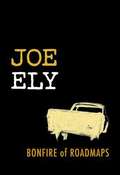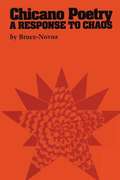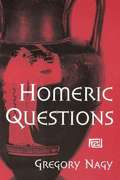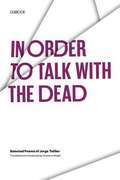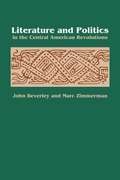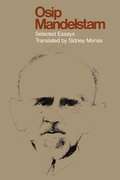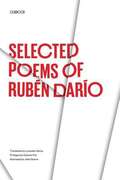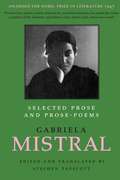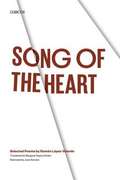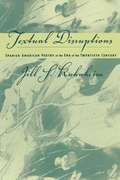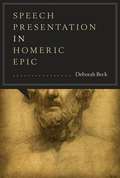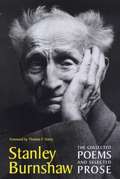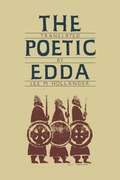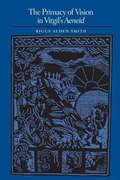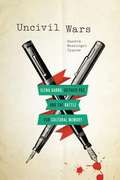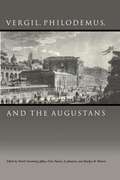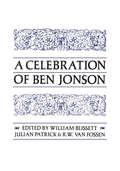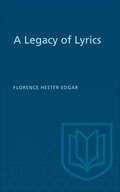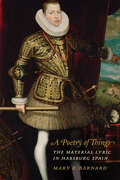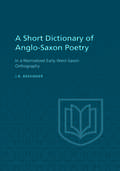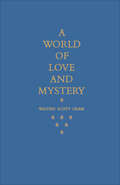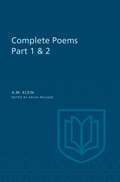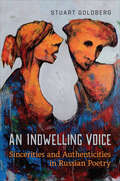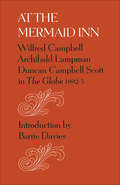- Table View
- List View
Bonfire of Roadmaps
by Joe Ely"In Bonfire, I can't help but think of the Beat writers--Corso, Ginsberg, Burroughs, and mostly, of course, Kerouac. . . . Bonfire of Roadmaps, at its very best, is about where music comes from and how it comes from. It offers us a glimpse into the heart of music. . . . This book is true. "--Terry AllenSince he first hitched a ride out of Lubbock, Texas, at the age of sixteen, singer-songwriter and Flatlanders band member Joe Ely has been a road warrior, traveling highways and back roads across America and Europe, playing music for "2 hours of ecstasy" out of "22 hours of misery. " To stay sane on the road, Ely keeps a journal, penning verses that sometimes morph into songs, and other times remain "snapshots of what was flying by, just out of reach, so to savor at a later date when the wheels stop rolling, and the gears quit grinding, and the engines shut down. " In Bonfire of Roadmaps, Ely takes readers on the road with him. Using verse passages from his road journals and his own drawings, Ely authentically re-creates the experience of a musician's life on tour, from the hard goodbyes at home, to the long hours on the road, to the exhilaration of a great live show, to the exhaustion after weeks of touring. Ely's road trips begin as he rides the rails to Manhattan in 1972 and continue up through recent concert tours with fellow Flatlanders Jimmie Dale Gilmore and Butch Hancock. While acknowledging that "it is not the nature of a gypsy to look in the rearview mirror," Joe Ely nevertheless offers his many fans a revelatory look back over the roads he's traveled and the wisdom he's won from his experiences. And for "those who want to venture beyond the horizon just to see what is there . . . to those, I hope these accounts will give a glint of inspiration . . . "
Chicano Poetry: A Response to Chaos
by Bruce-NovoaAlurista. Gary Soto. Bernice Zamora. José Montoya. These names, luminous to some, remain unknown to those who have not yet discovered the rich variety of late twentieth century Chicano poetry. With the flowering of the Chicano Movement in the mid-1960s came not only increased political awareness for many Mexican Americans but also a body of fine creative writing. Now the major voices of Chicano literature have begun to reach the wider audience they deserve. Bruce-Novoa's Chicano Poetry: A Response to Chaos-the first booklength critical study of Chicano poetry-examines the most significant works of a body of literature that has grown dramatically in size and importance in less than two decades. Here are insightful new readings of the major writings of Abelardo Delgado, Sergio Elizondo, Rodolfo Gonzales, Miguel Méndez, J. L. Navarro, Raúl Salinas, Ricardo Sánchez, and Tino Villanueva, as well as Alurista, Soto, Zamora, and Montoya. Close textual analyses of such important works as I Am Joaquín, Restless Serpents, and Floricanto en Aztlán enrich and deepen our understanding of their imagery, themes, structure, and meaning. Bruce-Novoa argues that Chicano poetry responds to the threat of loss, whether of hero, barrio, family, or tradition. Thus José Montoya elegizes a dead Pachuco in "El Louie," and Raúl Salinas laments the disappearance of a barrio in "A Trip through the Mind Jail. " But this elegy at the heart of Chicano poetry is both lament and celebration, for it expresses the group's continuing vitality and strength. Common to twentieth-century poetry is the preoccupation with time, death, and alienation, and the work of Chicano poets-sometimes seen as outside the traditions of world literature-shares these concerns. Bruce-Novoa brilliantly defines both the unique and the universal in Chicano poetry.
Homeric Questions
by Gregory NagyThe "Homeric Question" has vexed Classicists for generations. Was the author of the Iliad and the Odyssey a single individual who created the poems at a particular moment in history? Or does the name "Homer" hide the shaping influence of the epic tradition during a long period of oral composition and transmission?<P><P>In this innovative investigation, Gregory Nagy applies the insights of comparative linguistics and anthropology to offer a new historical model for understanding how, when, where, and why the Iliad and the Odyssey were ultimately preserved as written texts that could be handed down over two millennia. His model draws on the comparative evidence provided by living oral epic traditions, in which each performance of a song often involves a recomposition of the narrative.
In Order to Talk with the Dead: Selected Poems of Jorge Teillier
by Jorge TeillierReared in the rainy forests of Chile's "La Frontera" region which had nurtured Pablo Neruda a generation earlier, Jorge Teillier has become one of Chile's leading contemporary poets, whose work is widely read in Latin America and Europe along with the poetry of his well-known contemporaries Nicanor Parra and Enrique Lihn. This English-Spanish bilingual anthology now introduces English-speaking readers to Teillier, with a representative selection of his best work from all phases of his career. Carolyne Wright has translated poems from the volumes Muertes y maravillas (1971), Para un pueblo fantasma (1978), and Cartas para reinas de otras primaveras (1985). Avoiding the bravura effects of some of his contemporaries, Teillier writes from a life lived directly and simply, returning time and again in his poetry to the timeless and mythic South of his boyhood, the "Land of Nevermore. "
Literature and Politics in the Central American Revolutions
by John Beverley Marc Zimmerman"This book began in what seemed like a counterfactual intuition . . . that what had been happening in Nicaraguan poetry was essential to the victory of the Nicaraguan Revolution," write John Beverley and Marc Zimmerman. "In our own postmodern North American culture, we are long past thinking of literature as mattering much at all in the 'real' world, so how could this be?" This study sets out to answer that question by showing how literature has been an agent of the revolutionary process in Nicaragua, El Salvador, and Guatemala. The book begins by discussing theory about the relationship between literature, ideology, and politics, and charts the development of a regional system of political poetry beginning in the late nineteenth century and culminating in late twentieth-century writers. In this context, Ernesto Cardenal of Nicaragua, Roque Dalton of El Salvador, and Otto René Castillo of Guatemala are among the poets who receive detailed attention. "This book began in what seemed like a counterfactual intuition . . . That what had been happening in Nicaraguan poetry was essential to the victory of the Nicaraguan Revolution," write John Beverley and Marc Zimmerman. "In our own postmodern North American culture, we are long past thinking of literature as mattering much at all in the "real" world, so how could this be?" This study sets out to answer that question by showing how literature has been an agent of the revolutionary process in Nicaragua, El Salvador, and Guatemala. The book begins by discussing theory about the relationship between literature, ideology, and politics, and charts the development of a regional system of political poetry beginning in the late nineteenth century and culminating in late twentieth-century writers. In this context, Ernesto Cardenal of Nicaragua, Roque Dalton of El Salvador, and Otto René Castillo of Guatemala are among the poets who receive detailed attention.
Osip Mandelstam: Selected Essays
by Sidney MonasOsip Mandelstam, who died anonymously in a Siberian transit-camp in 1938, is now generally considered to be among the four or five greatest Russian poets of the twentieth century. The essays in this volume, presented in an exceptionally scrupulous and true translation, were selected because they represent Mandelstam's major poetic themes and his thought on literature, language and culture, and the work and place of the poet. Mandelstam's views on literature are profound and original, and they are expressed in striking and dramatic, if sometimes difficult, prose. These essays deal with such topics as the poetic process and the relationship of poetry to politics, culture, the traditions of the past, and the demands of the present. Professor Monas's lively introduction to the work and life of Mandelstam combines the virtues of both the critical essay and detached scholarship. Keeping biographical detail to a minimum, Professor Monas concentrates on the pattern that runs through the essays and lends them that coherence often noted in Mandelstam's poetry.
Selected Poems of Ruben Dario
by Ruben DarioRubén Darío changed the whole course of Spanish poetry, by converting it to "modernism" and by halting what he called "the mummification of Spanish rhythms. " Exotic, erratic, revolutionary, he was a major poet by any standards. This translation, by a man who is himself a poet, brings to English readers the whole range of Darío's verse-from the stinging little poems of Thistles to the dark, tired lines written at the end of his life.
Selected Prose and Prose-Poems
by Stephen TapscottThe first Latin American to receive a Nobel Prize for Literature, the Chilean writer Gabriela Mistral (1889-1957) is often characterized as a healing, maternal voice who spoke on behalf of women, indigenous peoples, the disenfranchised, children, and the rural poor. She is that political poet and more: a poet of philosophical meditation, self-consciousness, and daring. This is a book full of surprises and paradoxes. The complexity and structural boldness of these prose-poems, especially the female-erotic prose pieces of her first book, make them an important moment in the history of literary modernism in a tradition that runs from Baudelaire, the North American moderns, and the South American postmodernistas. It's a book that will be eye-opening and informative to the general reader as well as to students of gender studies, cultural studies, literary history, and poetry.
Song of the Heart: Selected Poems by Ramon Lopez Velarde
by Ramon Lopez VelardeIn this illustrated volume of poetry, two of Mexico's most prominent artists, poet and painter, join their words and images of animals to create a work of startling insight and beauty.
Spanish American Poetry at the End of the Twentieth Century: Textual Disruptions
by Jill S. KuhnheimHas poetry lost its relevance in the postmodern age, unable to keep pace with other forms of cultural production such as film, mass media, and the Internet? Quite the contrary, argues Jill Kuhnheim in this pathfinding book, which explores how recent Spanish American poetry participates in the fundamental cultural debates of its time. Using a variety of interdisciplinary approaches, Kuhnheim engages in close readings of numerous poetic works to show how contemporary Spanish American poetry struggles with the divisions between politics and aesthetics and between visual and written images; grapples with issues of ethnic, national, sexual, and urban identities; and incorporates rather than rejects technological innovations and elements from the mass media. Her analysis illuminates the ways in which contemporary issues such as indigenismo and Latin America's postcolonial legacy, modernization, immigration, globalization, economic shifts toward neoliberalism and informal economies, urbanization, and the technological revolution have been expressed in-and even changed the very form of-Spanish American poetry since the 1970s.
Speech Presentation in Homeric Epic
by Deborah BeckThe Iliad and the Odyssey are emotional powerhouses largely because of their extensive use of direct speech. Yet this characteristic of the Homeric epics has led scholars to underplay the poems’ use of non-direct speech, the importance of speech represented by characters, and the overall sophistication of Homeric narrative as measured by its approach to speech representation. In this pathfinding study, by contrast, Deborah Beck undertakes the first systematic examination of all the speeches presented in the Homeric poems to show that Homeric speech presentation is a unified system that includes both direct quotation and non-direct modes of speech presentation. Drawing on the fields of narratology and linguistics, Beck demonstrates that the Iliad and the Odyssey represent speech in a broader and more nuanced manner than has been perceived before, enabling us to reevaluate our understanding of supposedly “modern” techniques of speech representation and to refine our idea of where Homeric poetry belongs in the history of Western literature. She also broadens ideas of narratology by connecting them more strongly with relevant areas of linguistics, as she uses both to examine the full range of speech representational strategies in the Homeric poems. Through this in-depth analysis of how speech is represented in the Homeric poems, Beck seeks to make both the process of their composition and the resulting poems themselves seem more accessible, despite pervasive uncertainties about how and when the poems were put together.
The Collected Poems and Selected Prose
by Staley Thomas F.Stanley Burnshaw began to publish poems in the 1920s and founded his own verse journal in 1925. After serving as coeditor and drama critic of the New Masses weekly (1934-1936), he entered book publishing, directing the Dryden Press until 1958, when he joined Henry Holt. The first of his nineteen earlier works, André Spire and His Poetry, appeared in 1934 and the last in 1990, A Stanley Burnshaw Reader, with an introduction by Denis Donoghue. The present volume—the definitive Burnshaw collection—offers all the poems he wishes to preserve and a full representation of his prose, including My Friend, My Father in its entirety. The Collected Poems and Selected Prose is vital reading for anyone wishing to be fully acquainted with the man whom Karl Shapiro called "one of the best-respected men of letters of our time."
The Poetic Edda
by Lee M. HollanderThe Poetic Edda comprises a treasure trove of mythic and spiritual verse holding an important place in Nordic culture, literature, and heritage. Its tales of strife and death form a repository, in poetic form, of Norse mythology and heroic lore, embodying both the ethical views and the cultural life of the North during the late heathen and early Christian times. Collected by an unidentified Icelander, probably during the twelfth or thirteenth century, The Poetic Edda was rediscovered in Iceland in the seventeenth century by Danish scholars. Even then its value as poetry, as a source of historical information, and as a collection of entertaining stories was recognized. This meticulous translation succeeds in reproducing the verse patterns, the rhythm, the mood, and the dignity of the original in a revision that Scandinavian Studies says "may well grace anyone's bookshelf. "
The Primacy of Vision in Virgil's Aeneid
by Riggs Alden SmithOne of the masterpieces of Latin and, indeed, world literature, Virgil's Aeneid was written during the Augustan "renaissance" of architecture, art, and literature that redefined the Roman world in the early years of the empire.<P><P> This period was marked by a transition from the use of rhetoric as a means of public persuasion to the use of images to display imperial power. Taking a fresh approach to Virgil's epic poem, Riggs Alden Smith argues that the Aeneid fundamentally participates in the Augustan shift from rhetoric to imagery because it gives primacy to vision over speech as the principal means of gathering and conveying information as it recounts the heroic adventures of Aeneas, the legendary founder of Rome.
Uncivil Wars: Elena Garro, Octavio Paz, and the Battle for Cultural Memory
by Sandra Messinger CypessThe first English-language book to place the works of Elena Garro (1916–1998) and Octavio Paz (1914–1998) in dialogue with each other, Uncivil Wars evokes the lives of two celebrated literary figures who wrote about many of the same experiences and contributed to the formation of Mexican national identity but were judged quite differently, primarily because of gender. While Paz’s privileged, prize-winning legacy has endured worldwide, Garro’s literary gifts garnered no international prizes and received less attention in Latin American literary circles. Restoring a dual perspective on these two dynamic writers and their world, Uncivil Wars chronicles a collective memory of wars that shaped Mexico, and in turn shaped Garro and Paz, from the Conquest period to the Mexican Revolution; the Spanish Civil War, which the couple witnessed while traveling abroad; and the student massacre at Tlatelolco Plaza in 1968, which brought about social and political changes and further tensions in the battle of the sexes. The cultural contexts of machismo and ethnicity provide an equally rich ground for Sandra Cypess’s exploration of the tandem between the writers’ personal lives and their literary production. Uncivil Wars illuminates the complexities of Mexican society as seen through a tense marriage of two talented, often oppositional writers. The result is an alternative interpretation of the myths and realities that have shaped Mexican identity, and its literary soul, well into the twenty-first century.
Vergil, Philodemus, and the Augustans
by Jeffrey Fish David ArmstrongThe Epicurean teacher and poet Philodemus of Gadara (c. 110-c. 40/35 BC) exercised significant literary and philosophical influence on Roman writers of the Augustan Age, most notably the poets Vergil and Horace. <P><P>Yet a modern appreciation for Philodemus' place in Roman intellectual history has had to wait on the decipherment of the charred remains of Philodemus' library, which was buried in Herculaneum by the eruption of Vesuvius in 79 AD. As improved texts and translations of Philodemus' writings have become available since the 1970s, scholars have taken a keen interest in his relations with leading Latin poets.
A Celebration of Ben Jonson
by William F. Blissett Julian Patrick R.W. Van FossenThe papers in this volume were given by some of the world's foremost Jonsonian scholars at a conference at the University of Toronto which marked the 400th anniversary of his birth. Each contributor came from a different institution, and Canada, the United States, Great Britain, and New Zealand were represented. The balance of papers likewise reflects the range of Ben Jonson's achievement and the combination of brio and control so characteristic of him.The papers arrange themselves in pairs: 'The Incredibility of Jonsonian Comedy,' as discussed by Professor Clifford Leech, is of a piece with distrust and defiance of the audience as discussed in the paper 'Jonson and the Loathèd Stage' by Professor Jonas Barish; Professor George Hibbard in 'Ben Jonson and Human Nature' and Professor D.I. McKenzie in 'The Staple of News and the Late Plays' offer critical assessment of plays, the one wide-ranging, the other closely focused on a previously neglected play; and Professor H.N. Maclean in '"A More Secret Cause": The Wit of Jonson's Poetry' and Professor L.C. Knights in 'Ben Jonson: Public Attitudes and Social Poetry' approach the difficult and rewarding task of defining Jonson's poetry of appraisal in different but complementary styles.
A Legacy of Lyrics
by Florence Hester EdgarAfter Florence Hester Edgar passed away in 1944, there was found among her effects a quantity of compositions in prose and verse almost ready for publication. From this literary bequest has been selected the poetry that follows. Some poems were published in the daily press of Ottawa, and others in a small brochure. But most of the poems are now offered to the reading public for the first time, and the editor bespeaks for them a cordial reception.
A Poetry of Things: The Material Lyric in Habsburg Spain (Toronto Iberic)
by Mary E. BarnardA Poetry of Things examines the works of four poets whose use of visual and material culture contributed to the remarkable artistic and literary production during the reign of Philip III (1598–1621). Francisco de Quevedo, Luis de Góngora, Juan de Arguijo, and Luisa de Carvajal y Mendoza cast cultural objects – ranging from books and tombstones to urban ruins, sculptures, and portraits – as participants in lively interactions with their readers and viewers across time and space. Mary E. Barnard argues that in their dialogic performance, these objects serve as sites of inquiry for exploring contemporary political, social, and religious issues, such as the preservation of humanist learning in an age of print, the collapse of empires and the rebirth of the city, and the visual culture of the Counter-Reformation. Her inspired readings explain how the performance of cultural objects, whether they remain in situ or are displayed in a library, museum, or convent, is the most compelling.
A Short Dictionary of Anglo-Saxon Poetry
by J. B. BessingerThe author has attempted to cover the vocabulary of the whole corpus of Anglo-Saxon verse and make the word-list as broadly useful as possible for the general student of Anglo-Saxon literature.
A World of Love and Mystery
by Walden Scott CramA World of Love and Mystery is a collection of poetry divided into three parts written by the poet Walden Scott Cram.
A.M. Klein: Original Poems 1937-1955 and Poetry Translations
by A. M. Klein Zailig PollockIt is for his poetry that A.M. Klein is best known and most warmly remembered. This collection includes all Klein's poetry, both original works and translations from Hebrew, Yiddish, Aramaic, and Latin. Many of them, coming from all periods of his careers, have never been published.The poems are arranged chronologically according to date of composition. This makes possible, for the first time, an appreciation of Klein's poetic development. The editor's introduction places this development in the perspective of Klein's life and time, and in particular explores Klein's lifelong struggle to reconcile his dual vocations as both a Jewish and a modernist writer.The textual apparatus identifies all authoritative versions for each poem and lists all emendations and all substative variants in both published and mauscript versions. The explanatory notes gloss obscure terms and references. They also provide a rich context for appreciation and interpretation by drawing connections with Klein's life, his wide reading, and his work as a whole. Wherever possible, Klein's own numerous, but scattered, comments on his poems have been cited.
An Indwelling Voice: Sincerities and Authenticities in Russian Poetry
by Stuart GoldbergHow have poets in recent centuries been able to inscribe recognizable and relatively sincere voices despite the wearing of poetic language and reader awareness of sincerity’s pitfalls? How are readers able to recognize sincerity at all given the mutability of sincere voices and the unavailability of inner worlds? What do disagreements about the sincerity of texts and authors tell us about competing conceptualizations of sincerity? And how has sincere expression in one particular, illustrative context – Russian poetry – both changed and remained constant? An Indwelling Voice grapples, uniquely, with such questions. In case studies ranging from the late neoclassical period to post-postmodernism, it explores how Russian poets have generated the pragmatic framings and poetic devices that allow them to inscribe sincere voices in their poetry. Engaging Anglo-American and European literature, as well as providing close readings of Russian poetry, An Indwelling Voice helps us understand how poets have at times generated a powerful sense of presence, intimating that they speak through the poem.
At the Mermaid Inn
by Duncan Campbell Scott Douglas Lochhead Archibald Lampman Barrie Davies Wilfred CampbellThe original At the Mermaid Inn, one of the most notable literary endeavours in Canada, was the result of the combined efforts of three poets: Wilfred Campbell (1858-1918), Archibald Lampman (1861-99), and Duncan Campbell Scott (1862-1947).A Saturday column that ran in the Toronto Globe from 6 February 1892 until 1 July 1893, it covered a wide range of material – original poetry and prose, book and music reviews, articles on philosophy, politics, poetics, religion, and writings on a myriad of other matters. Critics have often referred to the column in general terms, but until now it has been unavailable in book form for detailed study. This careful transcription of the entire series offers a fresh perspective on three of the most important Canadian literary figures of the nineteenth and early twentieth centuries.Here are three major Canadian poets as prose writers. Lampman writes essays about nature and poetry; Campbell provides controversial views on many subjects, especially religion and poetry; Scott writes book reviews and scholarly essays on music and a variety of Canadian matters. At the Mermaid Inn gives a fascinating glimpse into the literary and social concerns of the day. This volume beings to new light one of the most readable and vital documents in Canadian life and literature.
Authors, Audiences, and Old English Verse
by Thomas A. BredehoftAuthors, Audiences, and Old English Verse re-examines the Anglo-Saxon poetic tradition from the eighth to the eleventh centuries and reconsiders the significance of formulaic parallels and the nature of poetic authorship in Old English.Offering a new vision of much of Old English literary history, Thomas A. Bredehoft traces a tradition of 'literate-formulaic' composition in the period and contends that many phrases conventionally considered oral formulas are in fact borrowings or quotations. His identification of previously unrecognized Old English poems and his innovative arguments about the dates, places of composition, influences, and even possible authors for a variety of tenth- and eleventh-century poems illustrate that the failure of scholars to recognize the late Old English verse tradition has seriously hampered our literary understanding of the period. Provocative and bold, Authors, Audiences and Old English Verse has the potential to transform modern understandings of the classical Old English poetic tradition.
